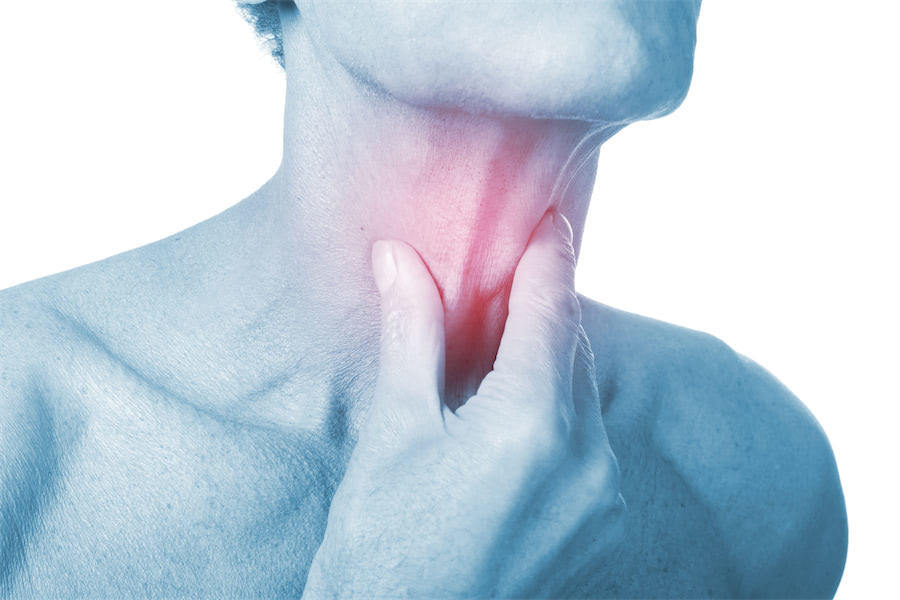
What is GERD?
Gastroesophageal reflux disease (GERD) is when stomach acid leaks back up into the esophagus (food tube between mouth and stomach). This happens when the ring-like muscle that acts as a valve between your stomach and esophagus (called lower esophageal sphincter or LES) relaxes at the wrong time. This lets contents in your stomach come back up into your food tube. The cause is most often unknown, but ages 50 and older are more likely to develop than younger people.
What does GERD feel like?
Symptoms can range from mild to severe and usually last from a few minutes to several hours. It has been known to burn the lining of one's esophagus, but many people don't realize they have GERD because the symptoms are tolerable or not noticeable.
Symptoms can include:
Heartburn/indigestion – a burning pain in your upper abdomen that spreads toward your chest and throat Belching – passing gas Burping – releasing gas through the mouth Hoarseness – a raspy voice Sore throat Cough Other than those listed above, GERD may cause such as chest pain, nausea, fever, trouble swallowing and frequent heartburn attacks. Some people with GERD may experience only mild symptoms relief by over-the-counter (OTC) medications.
What are GERD symptoms?
GERD is characterized by heartburn, regurgitation, or both. GERD may also be associated with the development of esophagitis and even Barrett's esophagus.
Heartburn is typically described as a burning pain in the retrosternal area that radiates to the neck and throat. This pain is worsened when lying down in a supine position (laying on the back) and is usually relieved within several minutes when sitting upright or leaning forward. Patients have described the pain caused by GERD as similar to heart-related chest pain called angina or indigestion pains, sometimes associated with dyspepsia, gastroesophageal reflux, and peptic ulcer disease (PUD). GERD can be difficult to diagnose as being from GERD or other causes due to the similarity of the symptoms.
Gas in the stomach is a normal finding. Belching relieves this gas and is a regular event. However, if burping becomes excessive, it may indicate that too much air has been swallowed during eating or drinking. This swallowed air can lead to bloating and discomfort after meals or sleep. Some patients complain of relief of symptoms following episodes of belching with no evidence on pH testing. In these cases, excessive Belching may signify an upper GI motility disorder.
Esophageal regurgitation is usually associated with abnormal relaxation of the lower esophageal sphincter (LES), which leads to reflux of gastric contents into the esophagus. This may lead to a variety of complications, including:
Gastrointestinal bleeding caused by erosion (ulceration) or scarring (fibrosis) in the lining of the esophagus Esophagitis which is inflammation or irritation of the esophagus due to GERD Diagnosis is based on GERD symptoms, medical history, and endoscopy in which it was found that patients suffered from GERD when they had one or more of the following findings:
Symptoms may also be caused by other conditions, including eosinophilic esophagitis (EoE); GERD is diagnosed when the patient has normal endoscopic findings and symptoms.
It was only in the past few decades that GERD became widely accepted as a disease with many etiologies, life-threatening complications, and wide-ranging treatment options. It wasn't until after 1970 that the introduction of 24-hour ambulatory pH monitoring allowed for a more accurate diagnosis that GERD is a common disorder presenting with heartburn or regurgitation, which are both prominent features.
How do you get relief from GERD?
There are numerous ways to help relieve symptoms, including dietary modifications, over-the-counter medications, and prescription medications.
GERD can cause many problems, including weight loss related to nausea, vomiting, difficulty swallowing, and avoidance of food intake, leading to nutrient deficiencies and malnutrition. One study found that patients may benefit from forwarding positioning during sleep to reduce nighttime reflux episodes. The authors of this study recommend that patients adopt this sleeping position, called the "left lateral decubitus" (lying on your left side), rather than sleeping flat facing upward or with your upper body elevated by pillows. This may help prevent GERD symptoms and improve the quality of life.
